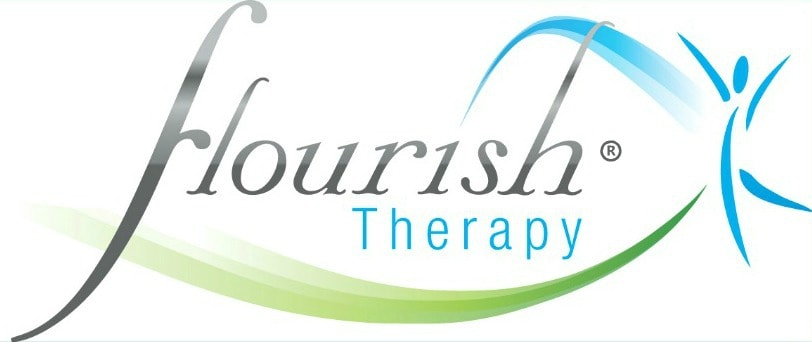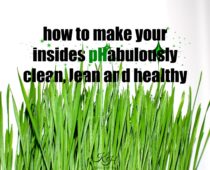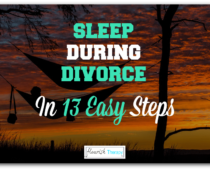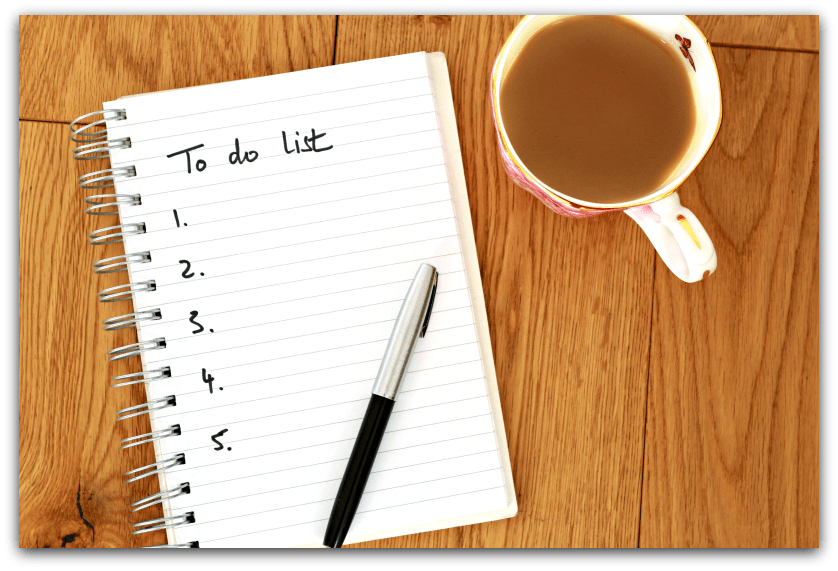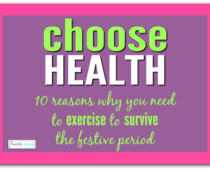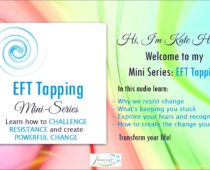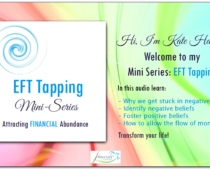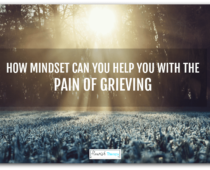Natural Remedies for Depression
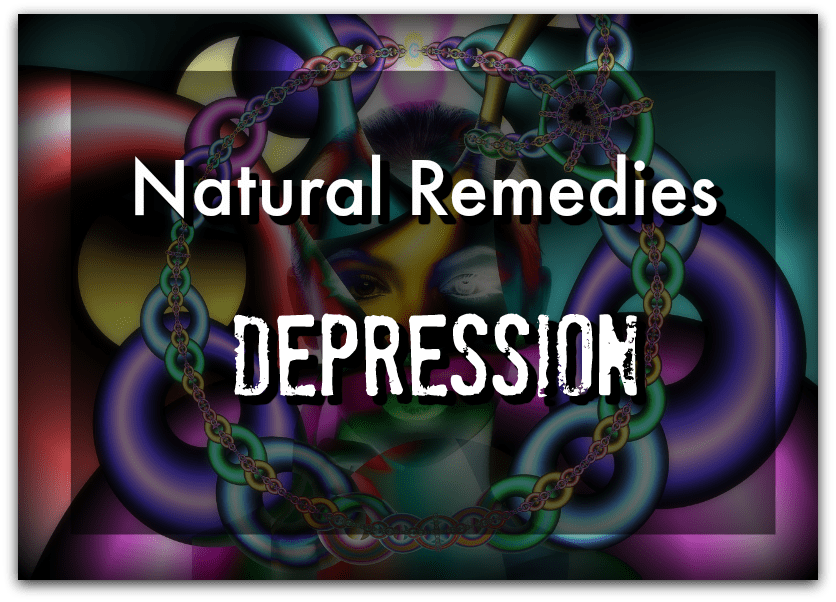
Natural Remedies for Depression
Depression can make you feel helpless and as though you are a spectator to your life. But remember, you are not! Below is a list of natural remedies for depression which will help to put the spring back into your step.
There are many ways to help yourself overcome your depressive feelings to help you regain a sense of control and satisfaction over your life. Sometimes you will need medication, but there are also many natural remedies for depression you can use in order to pull yourself back to the light and happiness of general living.
Do you wake up one day feeling ok and then wake up the next feeling exhausted, lethargic, ratty and having no enthusiasm for life at all? Sometimes these troughs of black can last for weeks and months.
Unmet Emotional Needs
Depression, or depressive feelings, are often a result of having unmet emotional needs. Emotional needs include:
- security (a home, sense of safety, financial security);
- good health;
- access to good nutrition;
- love (this could be from parents, close friends, a lover, pets);
- esteem (satisfaction in job, confidence, respect of yourself and respect of others);
- a sense of meaning in life (an idea of how your life is contributing to a larger picture).
I would encourage you to spend some time (ideally in the morning) to go through each of the bullet points above to work out where you think you may be lacking in your emotional needs. By understanding where there are unmet needs enables you to take action to remedy this.
When you review the bullet points above, you may not like the answers. Often unmet needs require change, and change requires effort as well as venturing into the unknown.
Is your career in conflict with your values? Has your marriage or relationship outlived its passion, love and mutual respect? Are you suffering health challenges? Do you feel weighed down by creative blocks? Are you craving human interaction? Do you miss having someone to hold your hand?
Below is a list of natural remedies for depression to help you beat the blues. Using a combination of them will help you most, but you know who you are and what will work best for you. Try not to avoid suggestions because of the possible upheaval they may cause. If you’re not happy now, there is a reason for that. Sometimes you will need to make changes in your life. Despite the short term upheaval, the long term gains can be countless – and ultimately lead to your happiness.
St John’s Wort
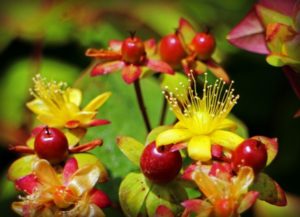 St John’s Wort is a plant and herbal medicine. It also grows like mad once it’s in your garden! It works in similar ways as traditional antidepressants and has been tested to be as effective in combatting mild to moderate depression as traditional anti-depressant medications. It comes in tablets and capsules, tea bags and as a tincture which you can add as drops to water.
St John’s Wort is a plant and herbal medicine. It also grows like mad once it’s in your garden! It works in similar ways as traditional antidepressants and has been tested to be as effective in combatting mild to moderate depression as traditional anti-depressant medications. It comes in tablets and capsules, tea bags and as a tincture which you can add as drops to water.
Natures Aid Ucalm St John Wort Tablets – Pack of 120St John’s Wort extends the life of serotonin, dopamine and norepinephrine – happy messengers in the brain. Helping us to feel happier for longer and more often.
St John’s Wort has contraindications which means it can interact with other medications such as for HIV, anti-depressants (it will say on the box not to take if you are depressed for this reason), blood thinners, chemotherapy and contraceptive pills. If you are planning on using this herb, talk to your doctor first. Up to 900mg daily is recommended for mild to moderate depression.
Saffron
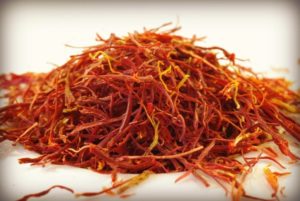 Saffron is a plant that helps to increase serotonin levels in the brain. It has been reported to be as effective as taking fluoxetine (Prozac) in reducing symptoms of depression.
Saffron is a plant that helps to increase serotonin levels in the brain. It has been reported to be as effective as taking fluoxetine (Prozac) in reducing symptoms of depression.
Saffron Pure Spanish 4g (Azafran)But even better, sexual dysfunction which can be married with Prozac consumption does not occur when using a saffron supplement.
30mg daily in two divided doses is recommended for mild to moderate depression.
Omega 3 Fatty Acids
Omega 3 fatty acids, such as those found in fatty fish, have been reported to help prevent depression as well as alleviating depressive symptoms in those already diagnosed. It is thought that the fatty acids help to regulate emotions and dampen the fight and flight response to stress-stimulating experiences.
Solgar, Omega-3 EPA & DHA, Triple Strength, 950 mg, 100 SoftgelsOmega 3 fatty acids consist of three different types:
- DHA (Docosahexaenoic acid);
- EPA (Eicosapentaenoic acid);
- ALA (Alpha-linolenic) acid.
While most of us get sufficient ALA from our regular diets, we need to boost our intake of DHA and EPA fatty acids. To boost your intake naturally, eat fatty fish such as mackerel, herring, kippers, salmon, tuna, anchovies or sardines twice a week. Alternatively take a supplement of fish oils which includes EPA and DHA of 500mg to 1000mg daily.
Routine
Get into a routine. Depression will eat away at your routine.
A key component of depression is total lethargy. You need a routine which you can rely on rather than deciding what to do when you don’t feel like doing anything at all. A simple routine will help you to complete each aspect on auto-pilot.
Write it down and stick to it. It will help you wade through the mire of chaotic, stress-inducing oblivion that depressive feelings can lead to.
Light Therapy
During the short, dark and gloomy days of winter, some people suffer what has become known as seasonal affective disorder, appropriately named (SAD). It is brought on by a lack of exposure to UV light. UV light because of its production of vitamin D, affects the amount of serotonin we produce, so if we are low on vitamin D, it is likely that our serotonin levels could do with a boost.

Lumie Arabica Seasonal Affective Disorder SAD Lamp
Set Goals
Setting easy to achieve goals will enhance your sense of self-esteem. It might be as simple as making sure you get the ironing done, but do it. Don’t procrastinate about doing it. Just do it. By creating a habit of doing small jobs without asking yourself whether you want to do them or not will amaze you at how much you manage to achieve.
Exercise
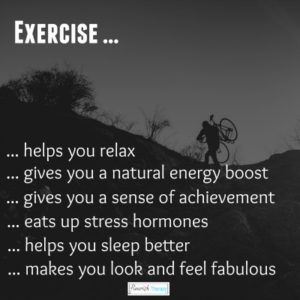 Exercise is beneficial to us for myriad reasons. It boosts the endorphins (feel good hormones) that our brains create, it helps us to feel better about our bodies and gives us a confidence in our ability at looking after ourselves.
Exercise is beneficial to us for myriad reasons. It boosts the endorphins (feel good hormones) that our brains create, it helps us to feel better about our bodies and gives us a confidence in our ability at looking after ourselves.
Exercise helps us to sleep better, deal with stress more effectively and helps to keep us on track to achieve positive behaviours.
I recommend exercise to all my anxiety clients and have seen some major transformations in their ability to stop panic attacks in their tracks as well as turn their lives around. Even in cases of PTSD, exercise, combined with good nutrition is resulting in some seriously impressive results. If you want to learn more about how I can help you reach your health and fitness goals, make sure to head over to my Facebook and/or Instagram pages and get in touch!
Click on the link at the bottom of this article to read more about the benefits of exercise on physical and mental health.
Tai Chi
 Tai chi has been described as meditation in motion. It is slow moving while focussing on breath and on your bodily sensations. The muscles are relaxed and many of the movements are circular and flowing. Never is the body forced or stretched beyond comfort. It is for this reason that Tai chi is relevant for people recovering from surgery or muscle wasting complications. Several of the outpatients I see at hospice speak positively of the benefits of Tai chi in their lives.
Tai chi has been described as meditation in motion. It is slow moving while focussing on breath and on your bodily sensations. The muscles are relaxed and many of the movements are circular and flowing. Never is the body forced or stretched beyond comfort. It is for this reason that Tai chi is relevant for people recovering from surgery or muscle wasting complications. Several of the outpatients I see at hospice speak positively of the benefits of Tai chi in their lives.
If you subscribe to the spiritual element of Tai chi, that it promotes the balanced flow of qi (life energy) and balance within the body and universe, you will benefit from a meditative aspect to this gentle and inclusive action.
Tai chi places less stress on joints than yoga and can be a source of relief from arthritic pain.
Yoga
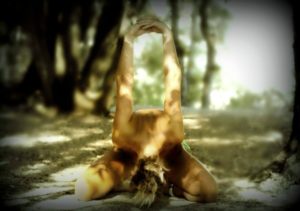 Yoga is effective in helping to balance the body and mind. It has been shown to help alleviate emotional distress and depression while at the same time strengthening and relaxing the body.
Yoga is effective in helping to balance the body and mind. It has been shown to help alleviate emotional distress and depression while at the same time strengthening and relaxing the body.
The use of breath is a key element of yoga. Controlled breathing is beneficial for promoting deep relaxation as well as delivering nutrients around the body and helping to improve the removal of toxins.
Use your breath
Deep breathing is one of the most effective and immediate ways of helping us to deal with fear. Deep breathing stimulates the vagus nerve which helps us to relax.
If we are relaxed, we can’t be stressed at the same time. It’s a physical impossibility.
So learn how to breathe deeply. Download your deep breathing cheat sheet here and enjoy the benefits of filling your body with life-giving oxygen.
Progressive Muscle Relaxation
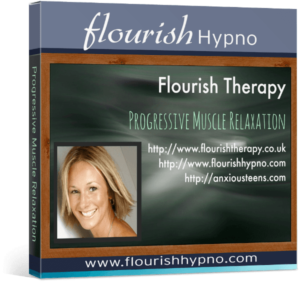 Progressive Muscle Relaxation (PMR) is a useful addition to follow on from deep breathing. Ideally find a comfortable and warm place to lie down while you perform PMR. You can work either from your head down to your toes or from your toes up to your head.
Progressive Muscle Relaxation (PMR) is a useful addition to follow on from deep breathing. Ideally find a comfortable and warm place to lie down while you perform PMR. You can work either from your head down to your toes or from your toes up to your head.
The general idea of PMR is that you tense a muscle group for a few seconds and then relax, although when I use it for deep relaxation I omit the muscle tensing. While you relax really focus on the sensation of the muscles feeling soft. Work your way up or down your body focusing on each individual muscle group, remembering to include the muscles of the face, as we hold a lot of tension in our foreheads, around our eyes and around our jaws.
You might like to download the Progressive Muscle Relaxation I often use when preparing clients for hypnosis. It doesn’t include the muscle tensioning as I find this version more relaxing.
Meditate
Meditation is well known for its therapeutic benefits. It helps to clear a cluttered mind and to relax you. It has many psychological and physiological effects and is a powerful tool when combatting stress and anxiety.
A cutting edge and brilliant tool which helps you stay on track with your meditation practice is the Muse headband.
Muse is an electronic tool that helps you learn how to meditate and is ideal for busy minds. First of all it calibrates itself to your brain in normal active mode. Once you begin meditating (with the headband on), it uses the sound of the wind, to tell you how well your brain is achieving meditation. So if you start getting a busy brain, the wind starts whooshing up. While you’re relaxed and in the zone, the wind is calm and settled.
For techno lovers it offers graphs and charts to show you how well you did in each session. It’s a fun and easy tool to use and helps you to get really good at meditating.
You can use your deep breathing techniques to prove how well they calm a busy mind if the wind gets a bit stormy.
Eat the right foods
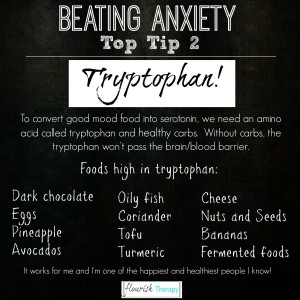 We are what we eat – it is so true! Ensure you are eating the right foods, and combining the right foods. Make sure a large percentage of what you eat comprises fresh vegetables and some fruit. This will guarantee you are giving your body and mind the anti-oxidants, vitamins and minerals which are essential for general health.
We are what we eat – it is so true! Ensure you are eating the right foods, and combining the right foods. Make sure a large percentage of what you eat comprises fresh vegetables and some fruit. This will guarantee you are giving your body and mind the anti-oxidants, vitamins and minerals which are essential for general health.
Include foods that have high levels of tryptophan. Tryptophan is an amino acid that converts foods into serotonin boosters.
Check out the Beating Anxiety infographic to see which foods contain high levels of tryptophan.
Eat regularly
Eat healthily and regularly to maintain your blood sugar levels. Even the happiest most positive people get grouchy when they are hungry.
Caffeine
I love coffee, but as too much caffeine can reduce serotonin levels, beware of drinking too much of it. Enjoy 2 – 3 cups a day, no later than 3pm, but no more than that until you begin to feel more positive.
Drinking coffee after 3pm may have a negative impact on your ability to sleep efficiently.
Reduce your alcohol intake
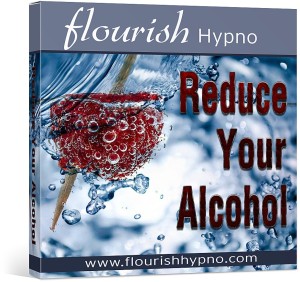 There is a link between depression and alcohol consumption, although it is not altogether clear whether it is depression which leads to alcoholism or alcoholism that leads to depression. The fact is that they are interrelated and cutting back on alcohol will ensure that you get the restorative sleep you require as well as helping you to feel more in control of your life.
There is a link between depression and alcohol consumption, although it is not altogether clear whether it is depression which leads to alcoholism or alcoholism that leads to depression. The fact is that they are interrelated and cutting back on alcohol will ensure that you get the restorative sleep you require as well as helping you to feel more in control of your life.
A small to moderate amount of alcohol can act as a relaxant and may help you to drift off to sleep more easily, however, any amount of alcohol in the system has a negative impact on the deep, restorative sleep we need to rebuild the body and recalibrate the chaos of the previous day’s events within the brain itself.
Alcohol acts as a depressant on the brain and should be avoided if you are concerned about your mental health. If you want to reduce the amount of alcohol you drink, but not cut it out completely, click on the hypnosis download to the left of this text.
Be involved
When you’re feeling depressed you allow yourself to become passive instead of active in your life. Don’t allow this to happen. You and you alone have ultimate control over your decisions and choices.
Even though you may not want to make the effort to “think” or consider various options or problems, they won’t vanish by your inactivity. Be brave and just decide. It will then be removed from your to-do list and your energy is freed up for living your life. Add a few of the natural remedies for depression listed in this article to your to-do list.
Challenge your self-talk
This can be difficult because you may feel that you “know” how everyone else is feeling. When you walk out of a room and all of a sudden a group of your friends bursts into laughter, do you have that nagging doubt they are laughing about you?
Don’t worry. We all feel like this. It’s human nature. It’s important in times like this to be your own best friend and tell yourself that although you “think” they’re laughing at you, it’s highly unlikely.
Use your logic and take control of these negative thoughts before you allow them to become your new best friend.
Learn something new
When we learn something new, or volunteer our time, we focus our energy outside of ourselves which is what we need to do when we’re feeling depressed. Often depressive feelings make us very insular, and the more we feel depressed the more isolated we can make ourselves feel.
Sign up for a new course which will not only teach you new skills but will enhance your self-esteem and may even lead to the creation of new relationships and/or a career. If you have skills you could share, consider voluntary work. I volunteer in hospice and it’s one of the best decisions I have ever made. I love it for many different reasons – and it makes me incredibly happy.
Try something challenging
Book yourself up for an outdoors activity course, join a walking club, learn how to rock climb or boulder, learn how to swim. Whatever it is that you can’t already do, sign up for something that you find challenging. There is a link to an article at the bottom of this post about the benefits of walking which is something that most of us can take up at no cost and involving no major effort.
We all have different ideas of what challenging means to us, so be guided by your own limits, but don’t let those limits define you or imprison you. Sign up for something that you know will be challenging, but that you know at a stretch you’ll be able to do.
It will boost your confidence as well as providing a means of meeting new and like-minded people.
Get help from a therapist
If you feel you are losing your grip on normality, before you go down the pill route, consider speaking to a qualified therapist about your problems.
Often talking about what is going on in your head to someone who doesn’t know you and is trained to spot various inclinations in your habits can provide you with information and education about how you might be able to adapt your thinking patterns and resultant behaviour.
Sometimes despite our best efforts we need that qualified person to challenge our beliefs and thought patterns in a kind and supportive environment. It can be incredibly informative and beneficial.
Ultimately, fighting depression requires an effort on your part. Depression has a knack of creeping upon us and all of a sudden we wake up feeling totally lethargic and overcome with a gloom that we can’t seem to lift. If this happens to you, begin by writing a list of things you need to get done. Work through it, create your routine and then add the suggestions in this article one by one, taking the suggestions that appeal to you most first.
Becoming active instead of passive
We are all different and no single remedy will suit every individual, but all the points above in the list of natural remedies for depression will have a positive impact on you to some degree. The hardest part is going to be accepting the fact that you are going to become active instead of being passive. Once you have made that decision the light at the end of the tunnel will begin to shine brighter.
It may not be an easy journey, but you are the only one living your life. So how do you want to live it? Beat depression, don’t let it define you.
Physical Fitness: How to stay healthy physically and mentally.
How You Need Exercise To Be Your Best And Vibrant You
How To Stay Fit And Healthy By Not Exercising
7 Reasons Why I Love Exercising Barefoot
15 Reasons Why Walking In Nature Is Your Best Health Booster
